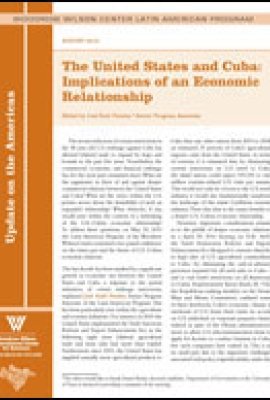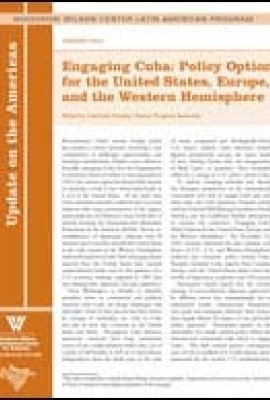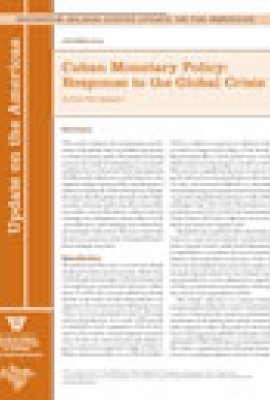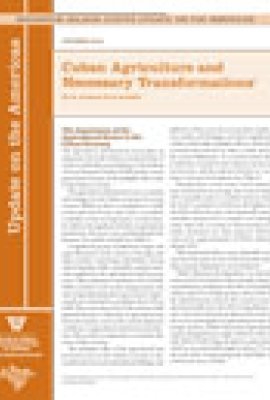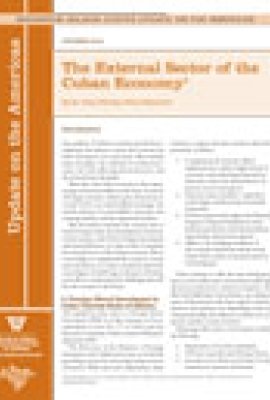Cuba
Since its founding in 1978, the Latin American Program has pursued an active agenda of scholarly research and public discussions on Cuban politics, society, and foreign affairs. Over the past several years we have held numerous conferences and seminars, bringing together Cuban, U.S., and Latin American scholars and policymakers to engage in research and debate on issues of critical importance. These meetings have been held both in Washington, DC as well as throughout the region in places such as Kingston, Jamaica, Havana, Cuba, Rio de Janeiro, Brazil, and Santo Domingo, Dominican Republic.
The Latin American Program's work on Cuba to date has focused on the following important issues:
1) the impact of a changing Cuba on its Caribbean neighbors vis-à-vis trade, migration, energy, narcotics trafficking, and security;
2) the shifting priorities of Cuba’s international security agenda;
3) political and economic changes in Cuba in the wake of Fidel Castro’s illness and subsequent retirement;
4) collective security in the Caribbean region.
The many policy bulletins and other publications resulting from these meetings have been widely distributed throughout the United States, Latin America, Canada, and Europe in both print and electronic formats and are found below.
Explore more related to this collection

Latin America Program
The Wilson Center’s prestigious Latin America Program provides non-partisan expertise to a broad community of decision makers in the United States and Latin America on critical policy issues facing the Hemisphere. The Program provides insightful and actionable research for policymakers, private sector leaders, journalists, and public intellectuals in the United States and Latin America. To bridge the gap between scholarship and policy action, it fosters new inquiry, sponsors high-level public and private meetings among multiple stakeholders, and explores policy options to improve outcomes for citizens throughout the Americas. Drawing on the Wilson Center’s strength as the nation’s key non-partisan policy forum, the Program serves as a trusted source of analysis and a vital point of contact between the worlds of scholarship and action. Read more



